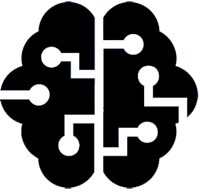Have questions or concerns? Let’s talk
Have questions or concerns? Let’s talk

Certified Artificial Intelligence Security Champion (CASC) is a specialized training program focused on offensive security testing of Artificial Intelligence systems. As AI becomes deeply integrated into modern applications, the attack surface has expanded. This course is designed to help cybersecurity professionals understand, analyze, and exploit security flaws in AI systems—particularly focusing on Large Language Models (LLMs), AI APIs, model behavior, and infrastructure.
Participants will explore how AI systems function, identify key vulnerabilities in models and APIs, and learn practical techniques to conduct security assessments using real-world labs and tools. The curriculum aligns with the evolving threat landscape and includes hands-on practice with AI-specific attack vectors.
This course is suitable for security professionals, ethical hackers, and AI engineers looking to build AI security skills. Recommended prerequisites include:
















This course is for anyone who wants to learn how to test and secure AI systems. It’s great for cybersecurity beginners, ethical hackers, AI and ML developers, and anyone curious about how to find and fix security issues in artificial intelligence. No deep AI knowledge is required—just a basic understanding of cybersecurity.
We start by understanding your unique needs and potential risks. Through detailed assessments, we identify vulnerabilities and develop.
We start by understanding your unique needs and potential risks. Through detailed assessments, we identify vulnerabilities and develop.
We start by understanding your unique needs and potential risks. Through detailed assessments, we identify vulnerabilities and develop.




Our comprehensive cybersecurity solutions provide robust protection, minimizing risks and giving you peace of mind knowing your data and systems are secure. We empower you with the tools and expertise to navigate today’s.

Cybersecurity is critical for safeguarding sensitive information, ensuring business continuity, and preventing financial and reputational loss due to cyberattacks.
Cybersecurity is critical for safeguarding sensitive information, ensuring business continuity, and preventing financial and reputational loss due to cyberattacks.
Cybersecurity is critical for safeguarding sensitive information, ensuring business continuity, and preventing financial and reputational loss due to cyberattacks.
Cybersecurity is critical for safeguarding sensitive information, ensuring business continuity, and preventing financial and reputational loss due to cyberattacks.
Reach out now for fast, professional support.
Evolve the anatomy of a security professional
Copyright © 2025 All Rights Reserved.